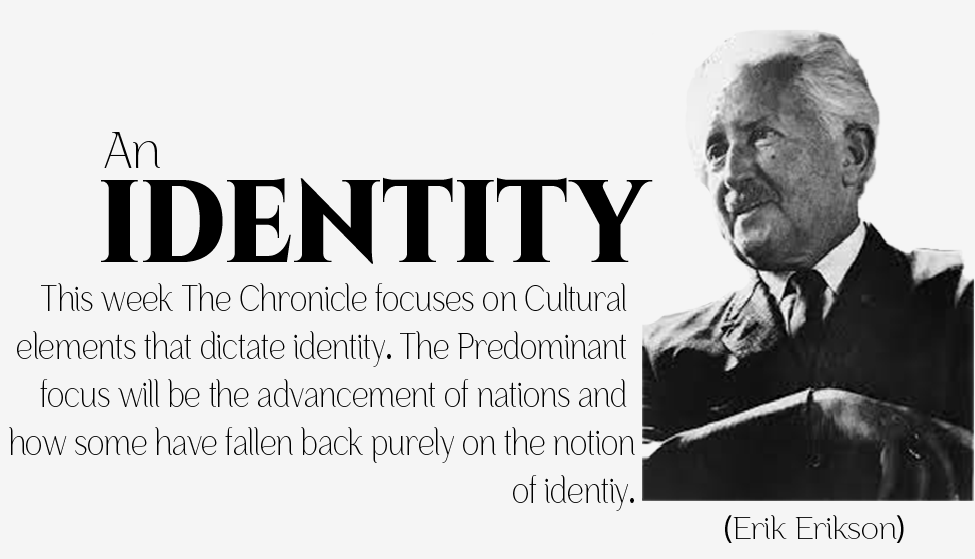
Erik Erikson was a researcher whos’ work concentrated on the crisis of identity development, or an identity crisis. He had broken down 8 stages of personality growth which can be found in all his research papers. We will concentrate on the clashes of personalities and the development of an identity over time.
Erikson believes that in adolescence, youths tend to fall into groups of similar interests. They then fall into different categories during their school days, for e.g. the sports oriented, the drama groups, the readers, and so on. He then suggests that a personality or an identity is attached to these groups that then later play a major role in maturity. An individual attaches his/her great achievements or basis his whole character on these decided groups or their shared activities. The bridge that is to be explored, is that how is an individual suppose to create those interests by the time he/she reaches adolescence, and how these interests develop groups. More so, how one should develop their belonging and their character in accordance to such attachments.
If an individual wishes to be a great artist, it is safe to say that the best group would be with those with similar ambitions, or already those who have achieved this feat. Same goes for any other ambition. Where groups fail and identity crashes, is where there is a similarity of keeping away one from pursuing their ambitions. These groups share the similar idea of a “laid back” approach to life and are usually those who wish not to abide by the rules of society. They then become usually juveniles or later on criminals.
The key analogy, “birds of a feather flock together”, could not be more realistic. If one is surrounded by those who lack ambition, and one wishes to achieve more then the most obvious approach is to separate themselves from such individuals. Although this task may seem straightforward, it is unfortunately equally very hard. If someone has attached their total identity in accordance to a group of vagabonds, then their chances of recreating a personality or identity later in life becomes trickier and a daunting process. The silver lining is, one can develop a personality and a stronger character from differentiating themselves from negative groups. Negative groups act as the perfect litmus test for the growth of ones character. If people around you possess negative qualities that you wish not to see in yourself, or your future partner, then the safest bet is to detach from this group
Solo acts tend to be socially awkward, yet have a unique identity attached to themselves. This identity allows them to pursue greater feats at times, and once reaching their desired destinations in life, attach themselves to others who have done so too in their lives. The great I.T geniuses at silicon valley is a typical example of this.
Cultures impose identities on their youths, via folklore and traditions. This identity leads them to develop a sense of cultural affiliation and then they later select groups with similar affinities. These groups act as the root of nationalists, and in some cases bigots and extremists too. When imposed with a unique thought process, and then later imposing a greatness attached to this thought, a division in society occurs, ethnocentrism is increased.
Nationalist then go on to differ in actions and divide further into political groups or activists. Either with their own understanding of what is right and both with similar goals. An identity is attached to the righteousness of their values as a patriot, regardless of all the wrong done. This can be seen with American nationalists, Islamic extremists, Soldiers hardened for extreme battles, and others. Nations utilize these groups for their own achievements, and later develop an identity around their self created historical facts and great personality arcs.
An identity is dependent on many factors that help develop an individual into their best form. One may pursue different interests and still possess different groups to mingle with. The uniqueness of an identity comes from the acceptance of positive and negative values within a social gathering. The litmus test that exists is that if a negative pattern exists within your social circles, then that pattern exists in one self. Thus, to better oneself is to pursue all positive acts and detach from negative patterns. Groups that lead to harsh activities also should be avoided, as one must possess a balanced personality whereby craving the search for knowledge and physical growth, whilst similarly avoiding anything that occurs in extremities. An identity can only be developed with discipline and attainment of knowledge. Otherwise, the negative and ill-disciplined rarely leave a mark in history.



